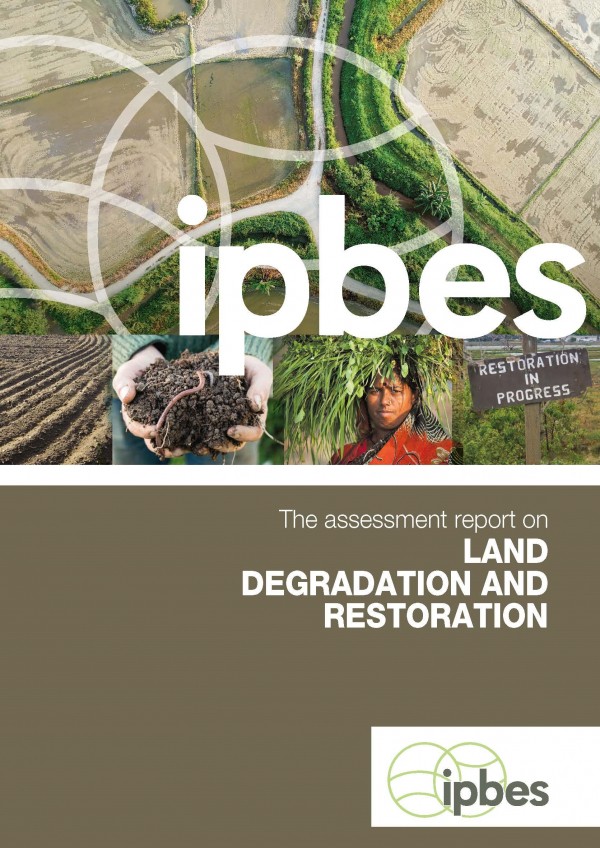UMD Geographical Sciences makes major contributions to the United Nations IPBES Assessment Report on Land Degradation and Restoration
Unsustainable land use is costing billions of dollars, impacting human health, contributing to climate change and scarring the Earth for future generations. As consumers, we are living ever further away from the lands that sustain us. Addressing land degradation location by location is insufficient when consumption in one part of the world influences the land and people in another. The Intergovernmental Science-Policy Platform on Biodiversity and Ecosystem Services (IPBES) has recently completed the “Assessment Report on Land Degradation and Restoration”. The Report is a wake-up call, showing the alarming scale of transformation by humankind and the changing nature and interconnections between the forces driving land degradation. It is a comprehensive effort to build credible scientific evidence so much better decisions about land use will be possible.
The Report contains a summary for policy makers and eight chapters: i Benefits to people from avoiding land degradation and restoring degraded land; ii Concepts and perceptions of land degradation and restoration; iii Direct and indirect drivers of land degradation and restoration; iv Status and trends of land degradation and restoration and associated changes in biodiversity and ecosystem functions; v Land degradation and restoration associated with changes in ecosystem services and functions, and human well-being and good quality of life; vi Responses to halt land degradation and to restore degraded land; vii Scenarios of land degradation and restoration; and viii Decision support to address land degradation and support restoration of degraded land.
The Assessment was carried out over three years by a team of 160 international experts. These included members of UMD Geographical Sciences and other UMD Departments. The major contribution was to Chapter iv on “Status and trends of land degradation”. The Coordinating lead author was Dr. Steve Prince and contributions were made by Drs Molly Brown, Evan Ellicot, Cesar Izaurralde, Margaret Palmer (Director, UMD SESYNC) and Kate Tully (Plant Science and Landscape Architecture).
(Assessment Report on Land Degradation and Restoration, https://www.ipbes.net/assessment-reports/ldr)
Published on Thu, 11/14/2019 - 19:26


